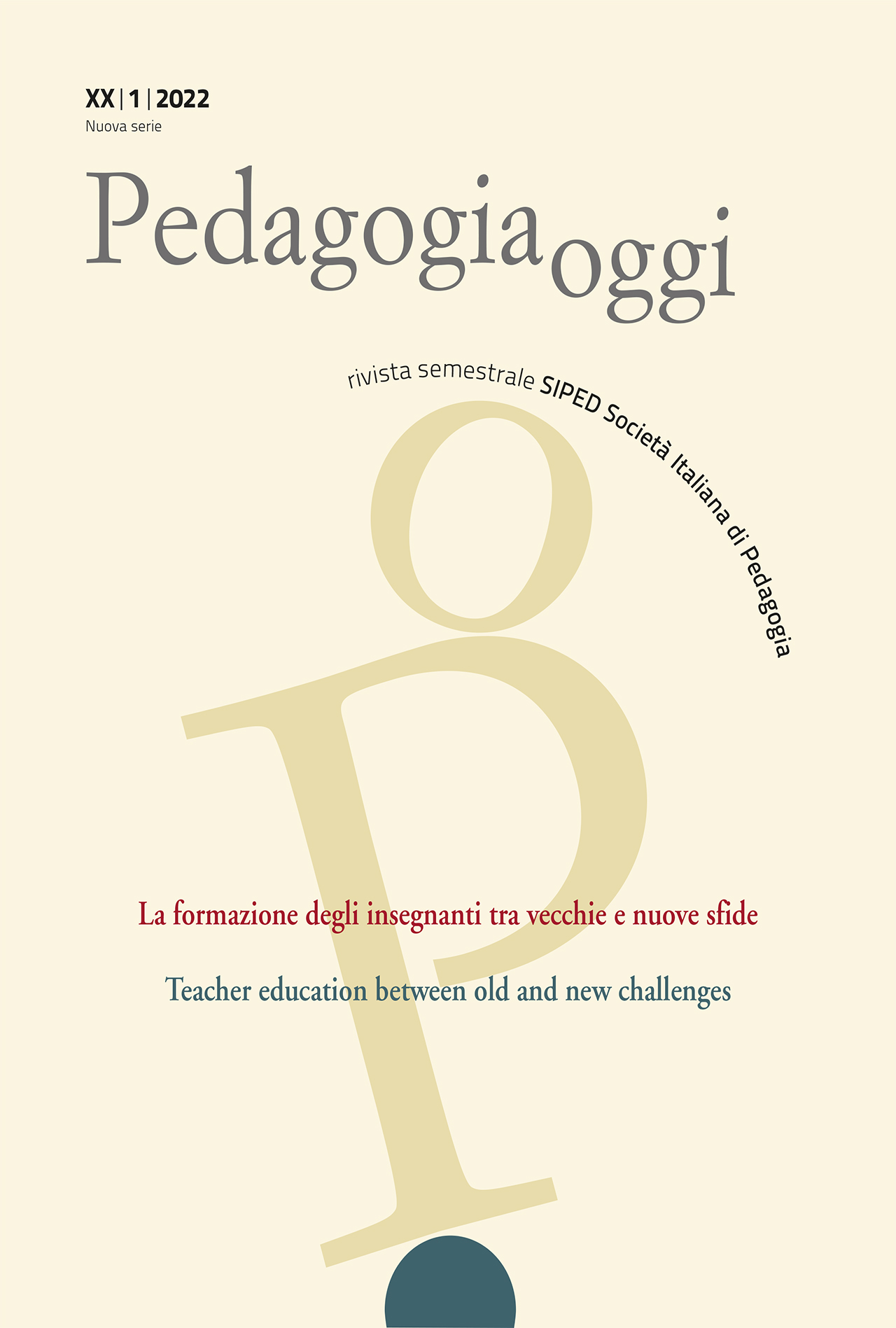Education for professional judgement and the dilemmas of teaching practice
DOI:
https://doi.org/10.7346/PO-012022-05Keywords:
Giudizio di pratica, Identità professionale, Soggettivazione professionale,, Dilemmi,, Intelligenza praticaAbstract
Many recent studies have insisted on “dilemmas” as a constitutive element of the teaching profession. This paper endeavours to explore in what sense education for professional judgement is a crucial part of teacher education for teachers to be able to engage with the dilemmas embedded in their practice in a conscious and reflective manner. The argument is set out in two steps: first, I will introduce the notions of general professional identity and professional subjectification and I will suggest that education for professional judgement, which Biesta links to subjectification, acquires its full meaning exclusively within the perspective of the cultivation of the “critical consciousness” – both critical-epistemological and historical-critical – that Baldacci outlines, by integrating Deweyan and Gramscian motifs.
Against this backdrop, secondly, I will indicate in education for “judgement of practice” (via the community of philosophical inquiry) a possible vehicle for the promotion of abilities of complex thinking in order to reflectively and critically recognise and confront the dilemmas of the profession.




